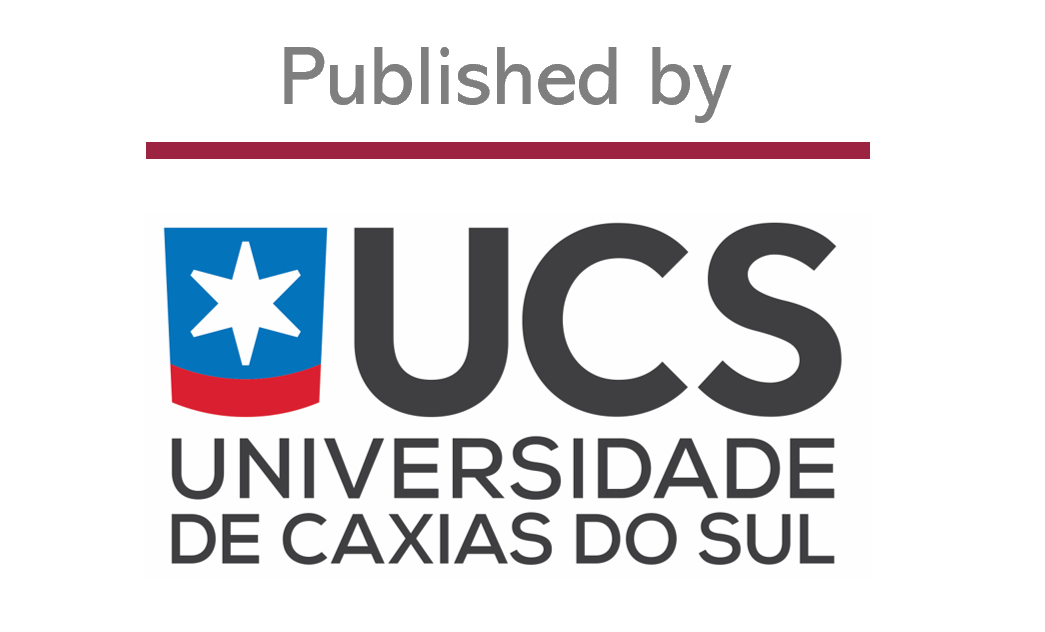Análise de propriedades das séries temporais dos ativos que compõem o índice IBOVESPA
DOI:
https://doi.org/10.18226/23185279.v9iss2p05Abstract
Diversas características das séries temporais financeiras são de interesse tanto do ponto de vista acadêmico, onde pretende-se analisar a dinâmica dos dados e suas propriedades numéricas, bem como de investidores, que por sua vez utilizam-se desse conhecimento na intensão de obter lucro em suas transações financeiras. Através da aplicação de diversas ferramentas de análise, fazendo uso de uma capacidade de computação massiva, foram avaliados os ativos que compõem o índice IBOVESPA, quanto suas propriedades numéricas e estatísticas. Dada a relevância e abrangência das séries temporais analisadas, os resultados obtidos a partir desta análise podem servir como base para a caracterização das séries temporais financeiras.
References
Louis Bachelier, “Theorie de la sp ´ eculation,” ´ Annales de l’Ecole Normale Superieure ´ , pp. 21–86, 1990.
Eugene F. Fama, “Efficient capital markets: A review of theory and empirical work,” The Journal of Finance, vol. 25, no. 2, pp. 383–417, 1970.
E.F. Brigham and J.F. Houston, Fundamentals of Financial Management, Cengage Learning, 2015.
Ricardo Goulart Serra; Andre Taue Saito; Luiz Paulo Lopes F,“Nova metodologia do ibovespa, betas e poder explicativo dos retornos das ações,” ˜ Revista de Contabilidade das Organizações ˜ , vol. 21, pp. 71–85, 2016.
Cristina Elizabeth M. Hagler; Ricardo Dias de Oliveira Brito, “Sobre a eficiencia dos índices de ações brasileiros,” ˜ Revista de Administração˜ , vol. 42, no. 1, pp. 74–85, 2007.
BM&FBovespa, Metodologia do Índice Bovespa, Apr. 2015.
Eugene F. Fama, “The behaviour of stock market prices,” Journal of Business, pp. 34–105, 1965.
Eugene F. Fama, “Mandelbrot and the stable paretian hypothesis,” The Journal of Business, vol. 36, no. 4, pp. 420–429, 1963.
J. Huston McCulloch, “13 financial applications of stable distributions,”in Statistical Methods in Finance, vol. 14 of Handbook of Statistics, pp. 393 – 425. Elsevier, 1996.
S.J. Taylor, Modelling Financial Time Series, World Scientific, 2008.
G.W. Corder and D.I. Foreman, Nonparametric Statistics for NonStatisticians: A Step-by-Step Approach, Wiley, 2011.
R.B. D’Agostino, Goodness-of-Fit-Techniques, CRC Press, 2017.
Metin Oner and Ipek Deveci Kocakoc “Jmasm 49: A compilation of some popular goodness of fit tests for normal distribution: Their algorithms and matlab codes (matlab),” Journal of Modern Applied Statistical Methods, vol. 16, pp. 547–575, 2017.
George Marsaglia, Wai Wan Tsang, and Jingbo Wang, “Evaluating Kolmogorov’s Distribution,” Journal of Statistical Software, vol. 8, no. i18, 2003.
Hubert W. Lilliefors, “On the kolmogorov-smirnov test for normality with mean and variance unknown,” Journal of the American Statistical Association, vol. 62, no. 318, pp. 399–402, 1967.
Gerard E. Dallal and Leland Wilkinson, “An analytic approximation to the distribution of lilliefors’s test statistic for normality,” The American Statistician, vol. 40, no. 4, pp. 294–296, 1986.
T. W. Anderson and D. A. Darling, “Asymptotic theory of certain ”goodness of fit”criteria based on stochastic processes,” Ann. Math. Statist., vol. 23, no. 2, pp. 193–212, 06 1952.
Harald Cramer, “On the composition of elementary errors,” ´ Scandinavian Actuarial Journal, vol. 1928, no. 1, pp. 13–74, 1928.
R. Von Mises and Verlag von Julius Springer, Wahrscheinlichkeit, Statistik und Wahrheit: Einfuhrung in die neue Wahrscheinlichkeitslehre und ihre Anwendung, Schriften zur Wissenschaftlichen Weltauffassung. Verlag von Julius Springer, 1928.
T. W. Anderson, “On the distribution of the two-sample cramer-von mises criterion,” Ann. Math. Statist., vol. 33, no. 3, pp. 1148–1159, 09 1962.
E.S. Pearson and H.O. Hartley, Biometrika Tables for Statisticians, vol. 2, University Press, Cambridge, 1972”.
S. S. Shapiro and M. B. Wilk, “An analysis of variance test for normality (complete samples),” Biometrika, vol. 52, no. 3/4, pp. 591–611, 1965.
J. P. Royston, “An extension of shapiro and wilk’s w test for normality to large samples,” Journal of the Royal Statistical Society. Series C (Applied Statistics), vol. 31, no. 2, pp. 115–124, 1982.
S. S. Shapiro and R. S. Francia, “An approximate analysis of variance test for normality,” Journal of the American Statistical Association, vol. 67, no. 337, pp. 215–216, 1972.
Patrick Royston, “A pocket-calculator algorithm for the shapiro-francia test for non-normality: An application to medicine,” Statistics in Medicine, vol. 12, no. 2, pp. 181–184, 1993.
Carlos M. Jarque and Anil K. Bera, “A test for normality of observations and regression residuals,” International Statistical Review / Revue Internationale de Statistique, vol. 55, no. 2, pp. 163–172, 1987.
Ralph D’Agostino and E. S. Pearson, “Tests for departure from normality. empirical results for the distributions of b2 and sqrt(b1),” Biometrika, vol. 60, no. 3, pp. 613–622, 1973.
Cesar Daltoé Berci and Celso Pascoli Bottura, “The n-gaussian probability distribution model of stock returns,” Em preparação˜ , 2020.
Wilton de Oliveira Bussab, Estatística Básica ´ , Editora Saraiva, 3ª edição edition, 23013.
Frank Jones Massey Wilfrid J. Dixon (Author), Introduction to Statistical Analysis, McGraw-Hill, New York, 4ª edic¸ao edition, 1957.
R.D. Yates and D.J. Goodman, Probability and Stochastic Processes: AFriendly Introduction for Electrical and Computer Engineers, Probability and Stochastic Processes: A Friendly Introduction for Electrical and Computer Engineers. Wiley, 2014.
Ruey S. Tsay, Analysis of Financial Time Series, Wiley & Sons, 2010.
James Douglas Hamilton, Time series analysis, Princeton Univ. Press, Princeton, NJ, 1994.
Charles R. Nelson and Charles R. Plosser, “Trends and random walks in macroeconmic time series: Some evidence and implications,” Journal of Monetary Economics, vol. 10, no. 2, pp. 139 – 162, 1982.
C.W.J. Granger and P. Newbold, “Spurious regressions in econometrics,” Journal of Econometrics, vol. 2, no. 2, pp. 111 – 120, 1974.
Denis Kwiatkowski, Peter C.B. Phillips, Peter Schmidt, and Yongcheol Shin, “Testing the null hypothesis of stationarity against the alternative of a unit root: How sure are we that economic time series have a unit root?,” Journal of Econometrics, vol. 54, no. 1, pp. 159 – 178, 1992.
Russell Davidson and James G. MacKinnon, Econometric theory and methods, Oxford Univ. Press, New York, NY [u.a.], 2004.
David A. Dickey and Wayne A. Fuller, “Distribution of the estimators for autoregressive time series with a unit root,” Journal of the American Statistical Association, vol. 74, no. 366, pp. 427–431, 1979.
Peter Schmidt Denis Kwiatkowski, Peter C.B. Phillips and Yongcheol Shin, “Testing the null hypothesis of stationarityagainst the alternative of a unit root,” Journal of Econometrics, vol. 54, pp. 159–178, 1992 North-Holland.
Karl Pearson, The life, letters and labours of Francis Galton, vol. 1, Cambridge [Eng.]University press,, 1930.
Nian Shong Chok, “Pearson’s versus spearman’s and kendall’s correlation coefficients for continuous data,” M.S. thesis, University of Pittsburgh, 2010.
C. Spearman, “The proof and measurement of association between two things,” The American Journal of Psychology, vol. 15, no. 1, pp. 72–101, 1904.
M.G. Kendall, Rank Correlation Methods, Griffin books on statistics. Griffin, 1962.
Jean Dickinson Gibbons and Subhabrata Chakraborti, Nonparametric Statistical Inference, pp. 977–979, Springer Berlin Heidelberg, Berlin, Heidelberg, 2011.
Hung Xuan Do, Robert Brooks, Sirimon Treepongkaruna, and Eliza Wu, “How does trading volume affect financial return distributions?,” International Review of Financial Analysis, vol. 35, pp. 190 – 206, 2014.
Jean-Philippe Bouchaud, Andrew Matacz, and Marc Potters, “Leverage effect in financial markets: The retarded volatility model,” Phys. Rev. Lett., vol. 87, pp. 228701, Nov 2001.
Stephen Figlewski and Xiaozu Wang, “Is the ’leverage effect’ a leverage effect?,” SSRN Electronic Journal, 11 2000.
Tara Keshar Nanda Baidya Paulo Henrique Soto Costa, “Propriedades estatísticas das series de retornos das principais ações brasileiras,” ˜Pesquisa Operacional, vol. 21, no. 1, pp. 61–87, June 2001.
J.V. Bradley and Prentice Hall, Distribution-free Statistical Tests, Prentice-Hall, 1968.
William Mendenhall and James Reinmuth, Statistics for Management and Ecomonics, Duxbury Press, fourth edition edition, 1982
Downloads
Published
How to Cite
Issue
Section
License
Copyright (c) 2021 Scientia cum Industria

This work is licensed under a Creative Commons Attribution 4.0 International License.
Declaração de originalidade e cessão de direitos autorais
Declaro que o presente artigo é original, não está sendo tendo sido submetido à publicação em qualquer outro periódico nacional ou internacional durante o processo de revisão. Através deste instrumento, em meu nome e em nome dos demais co-autores, porventura existentes, cedo os direitos autorais do referido artigo à revista SCIENTIA CUM INDUSTRIA. Contudo, a reprodução total ou parcial impressa ou eletrônica pode ser feita desde que o autor comunique oficialmente à revista. Declaro estar ciente de que a não observância deste compromisso submeterá o infrator a sanções e penas previstas na Lei de Proteção de Direitos Autorias. Declaro estar ciente de que a não observância deste compromisso submeterá o infrator a sanções e penas previstas na Lei de Proteção de Direitos Autorias (Nº9610, de 19/02/1998).




